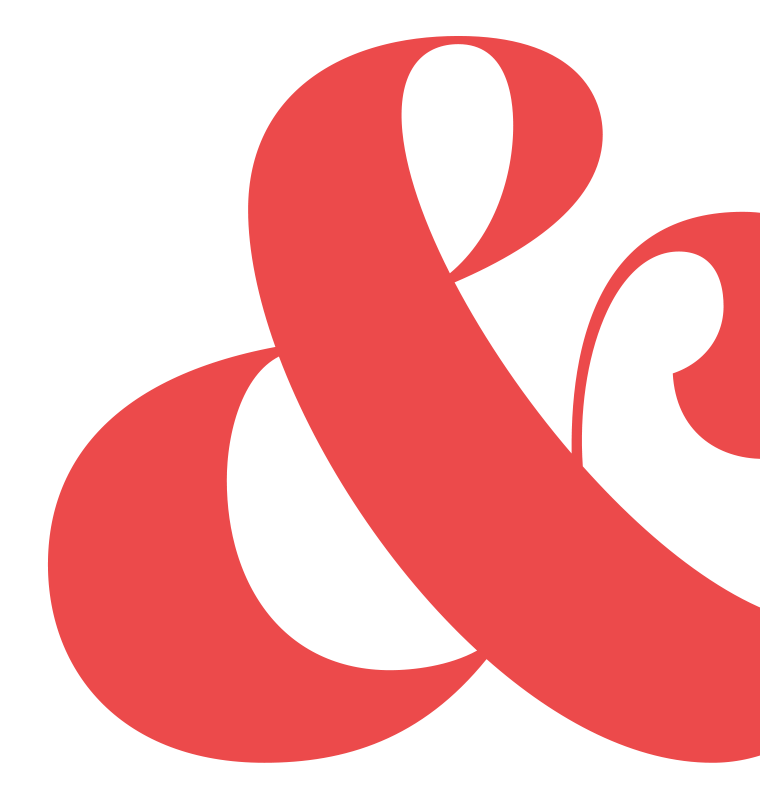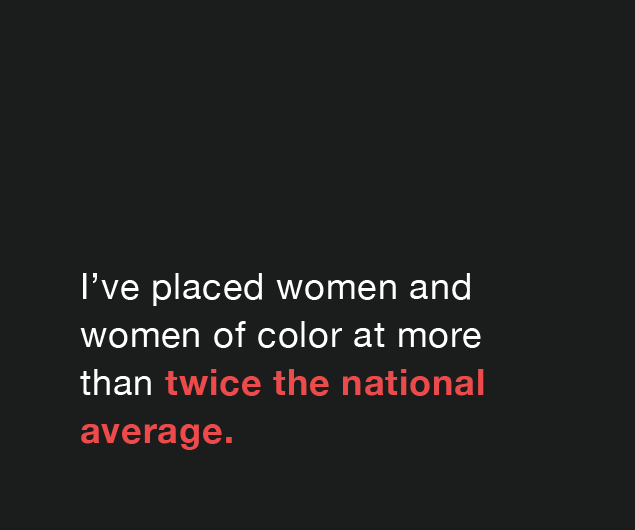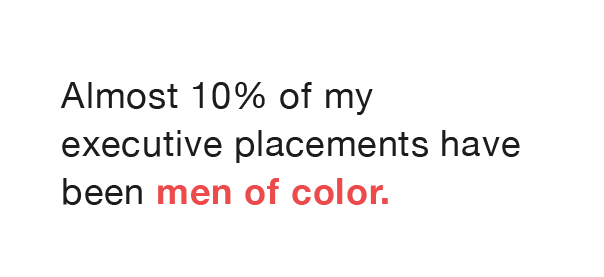
Rise to meet the moment.
As a firm believer in the exponential value of DEI, I provide research-based executive consulting and coaching that supports future-focused leaders.
While I have worked with thousands of diverse companies and candidates over the course of my career, my personal passion is expanding opportunities for women and other underrepresented demographics.
C O N S U L T I N G & C O A C H I N G
Prepare for success.
L E A D E R S &
O R G A N I Z A T I O N S
Learn more about how we can collaborate to support retention of under-recognized team members, build momentum for your IPO and support outplacement efforts.
C - S U I T E &
R I S I N G PROFESSIONALS
Advance or transition your career with a customized program to define your value, perfect your presentation, and maximize your results.

My track record outperforms national averages.
My clients are making an impact across an array of industries and organizations.
B I O T E C H & H E A L T H C A R E
Abbott
Amgen
Castlight Health
Children’s Hospital of Los Angeles
Hinge Health
MillporeSigma
Ochsner Health System
Thermo Fisher Scientific
T E C H
Dropbox
eBay
PayPal
Salesforce
TikTok
Twilio
S O C I A L I N N O V A T I O N
Goldiblox
Oatly
World Economic Forum
F I N A N C E
Bank of America
BMO Financial Group
USAA
U.S. Bank

















